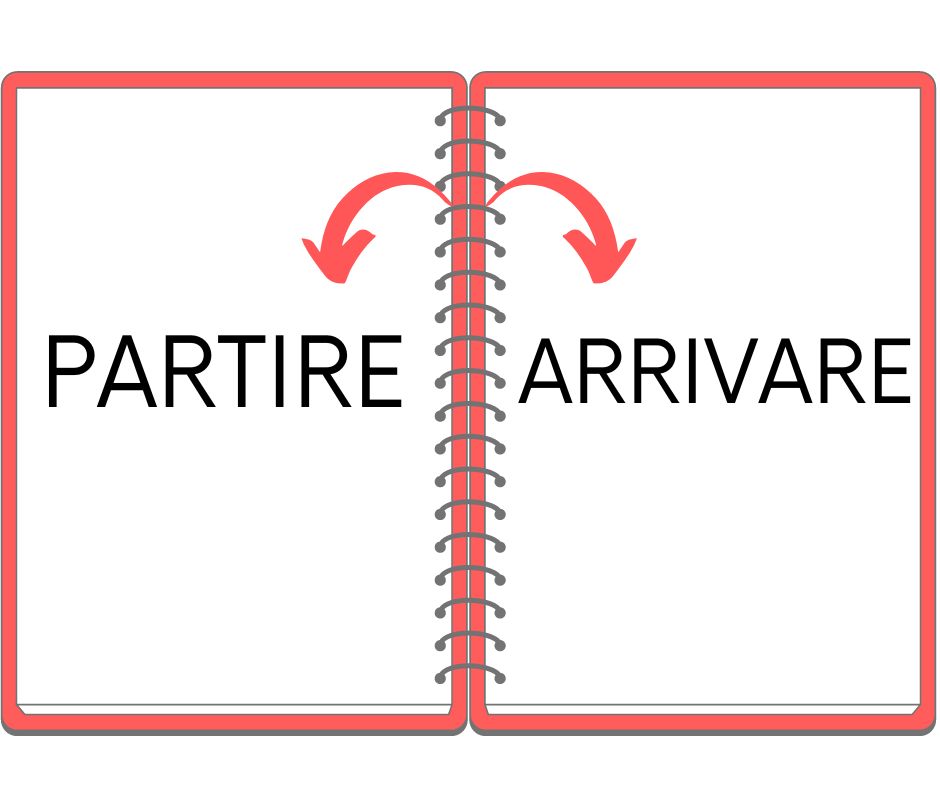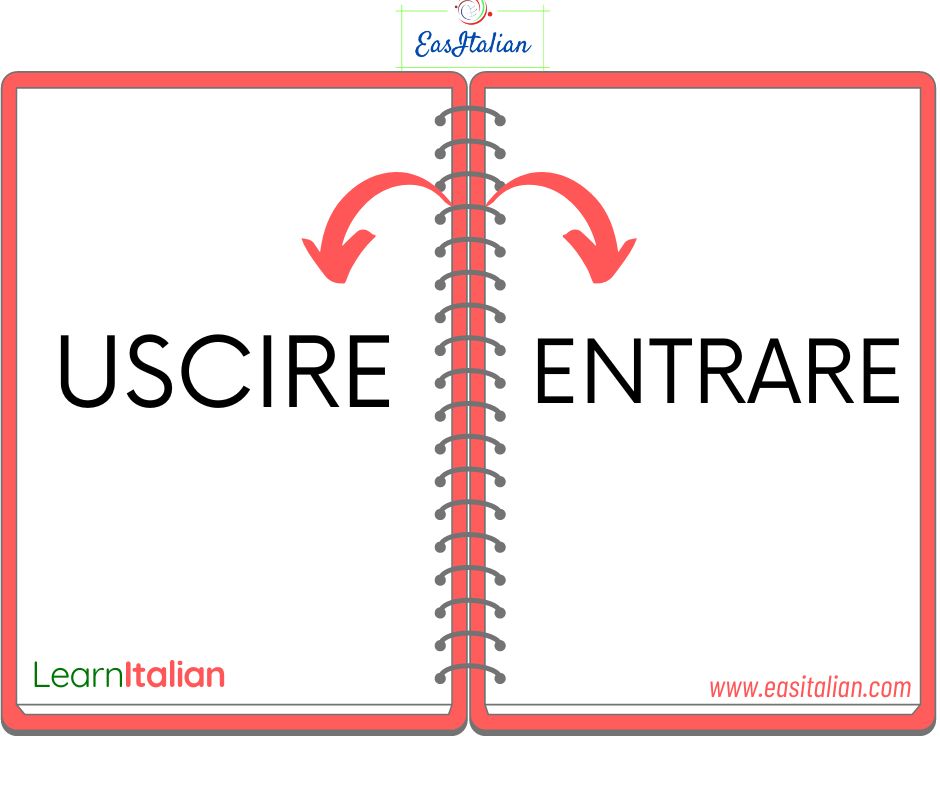The following phrases have different meaning using lasciare, partire, uscire e andare via or andarsene. Learn more about How to use Italian verbs partire lasciare uscire and andarsene.
Look at these examples to see how these verbs are used.
- lasciare casa –> to leave one’s house (abandon it)
- partire da casa — > to leave from one’s house (on a trip)
- uscire di casa –> to leave the house (go out into the street)
- andare via di casa –> move away from home
Partire
means to leave a specific place and indicates going on a long journey.
Partire requires the preposition DA to link it to the place being left.
Partire is basically the opposite of “to arrive” (arrivare).
L’aereo è partito da Milano. (The plane left from Milan)

Uscire
meaning to leave a place after entering it: to leave in the sense of going out.
It is the opposite of “to enter” (entrare)
If you leave a room, or your house, or a movie theatre, then use “uscire”.
Escono di casa. (They leave home.)
I miei amici sono usciti dal cinema. (My friends left the cinema)
You can also use uscire metaphorically, meaning to go out with or to date: It is very important to know this for conversations, in Italian.
Vuoi uscire questo fine di settimana? (Do you want to go out this weekend?)
Escono insieme da tre mesi (They’ve been dating for three months).

Lasciare
express the meaning to leave someone or something behind either on purpose or by forgetting.
It takes a person or thing left behind: lasciare qualcuno, lasciare qualcosa.
If you leave your wallet at home, or if you leave your family to go to school (or “break up” with a boyfriend/girlfriend) then you use “lasciare”.
Lascio la stanza (I’m leaving the room),
Ho lasciato il telefonino a casa (I left my cell phone at home).
Lascio le mie chiavi sulla scrivania. ( I leave my keys on the desk (on purpose).
Ho lasciato le mie chiavi in macchina. ( I left my keys in the car (by accident).
Lei lascia il suo fidanzato. (She leaves and breaks up with her boyfriend)
You can also use lasciare to explain why you’re walking out of the room:
A che ora dobbiamo lasciare la camera? (What time do we have to be out of the room?).
Andarsene and andare via
both mean to leave in the sense of going away.
There is an implication of leaving and not returning.
It means the opposite of “to stay” (Stare or Restare) or “to remain” (rimanere), so if you are physically in one spot and you go away from that place, then you use “andare via”.
Dobbiamo andare via dalla festa ora. (We have to leave the party now)
Marco se n’è andato sette anni fa. (Marco left seven years ago)
L’inverno se ne va. (Winter is almost over)
Useful Expressions
Useful Expressions with partire
- partire in treno/autobus/aereo (to leave by train/bus/plane)
- partire per affari (to leave on a business trip)
- a partire da oggi (from today forward)
- partire dal presupposto che… (to depart from the assumption that …)
Useful Expressions with lasciare
- lasciare il lavoro (to leave one’s job)
- lasciare una impronta (to leave a mark / a trace / an impression)
- lasciare una mancia (to leave a tip)
- lasciare in giro (leave around)
- lasciare in sospeso (put on hold)
- lasciare a bocca aperta (jaw dropping)
- lasciare la parola (let someone else speak)
- lasciare perdere (let it go/forget about it)
- lasciare il segno (leave your mark)
- prendere o lasciare (take or leave)
Useful Expressions with uscire
- uscire di casa (to leave the house)
- uscire dall’ospedale (to be released from the hospital)
- uscire vincitore/perdente (to come out a winner/loser)
- Quel libro sta per uscire. (That book is about to be published)
MORE EXPRESSIONS AND PHRASES about How to use Italian verbs partire lasciare uscire and andarsene
Non ti lascio andare via dalla mia vita. (I am not going to let you walk out of my life)

What’s next?
You might want to keep learning Italian online with these free resources:
🔗 Using Volta Momento Tempo and Ora to Talk about Time in Italian









Leave a Reply